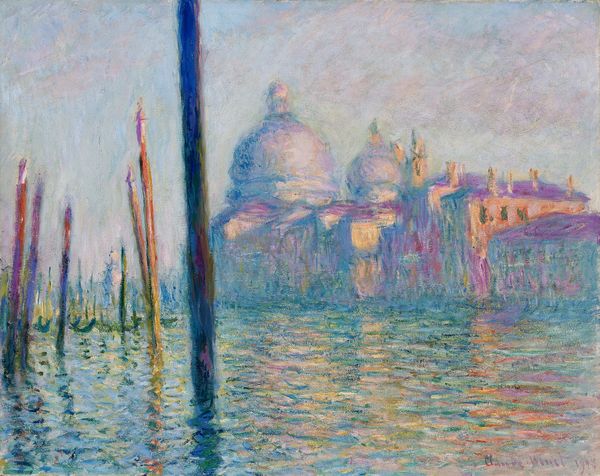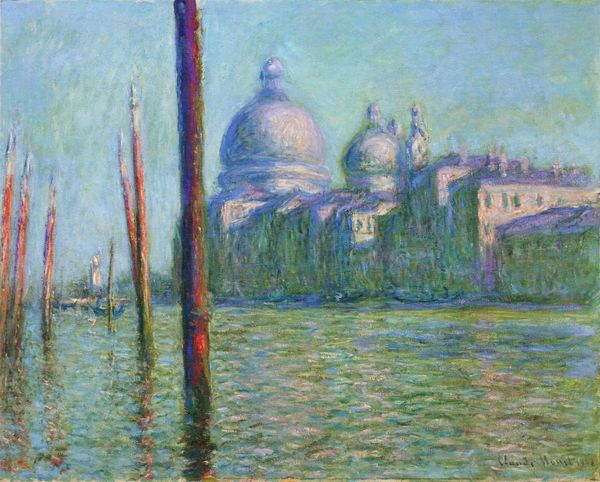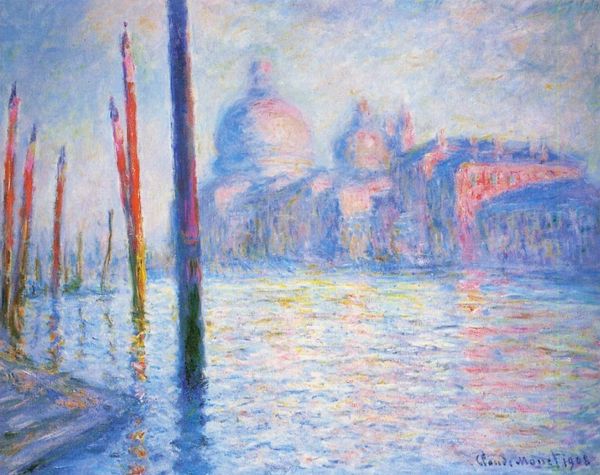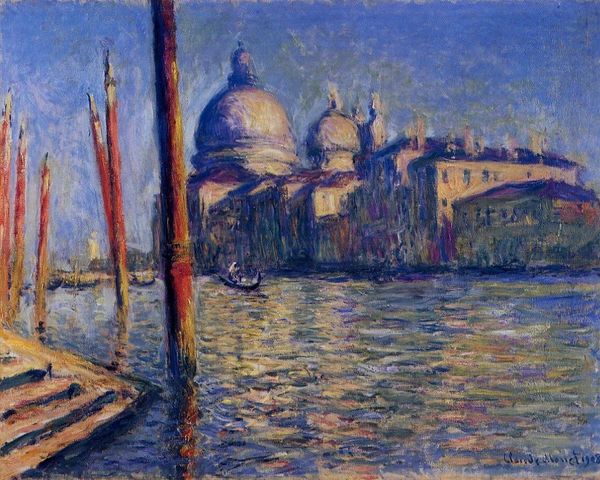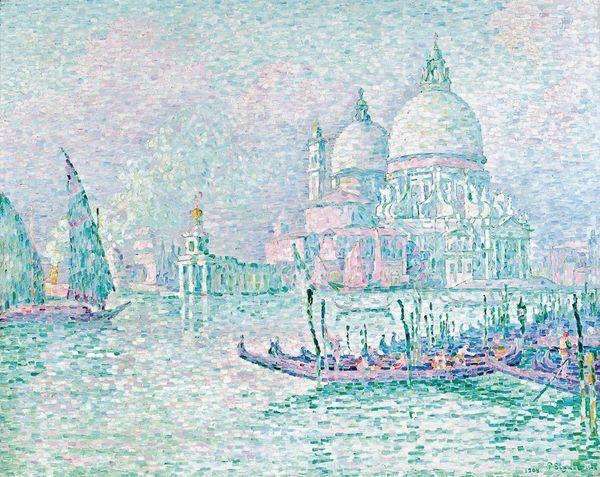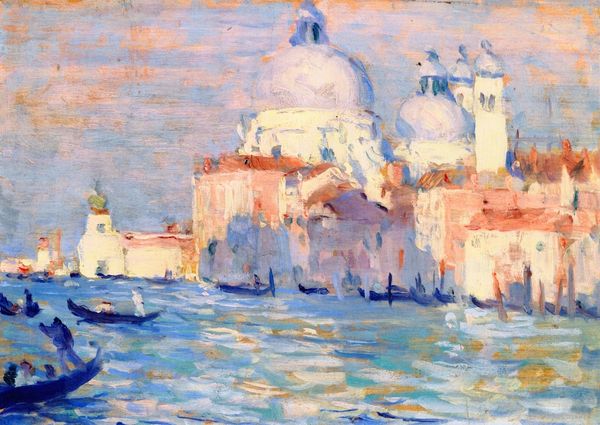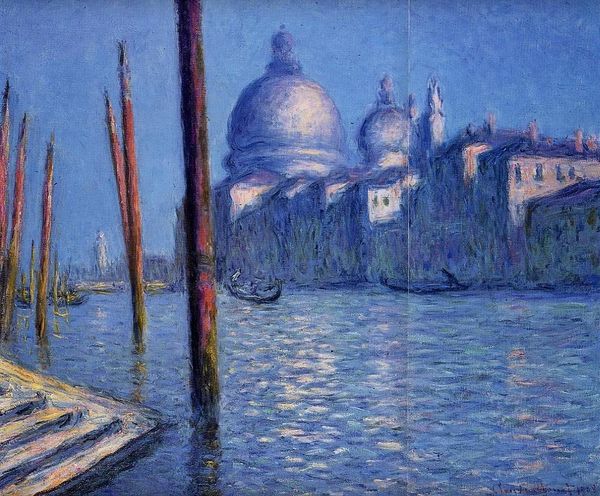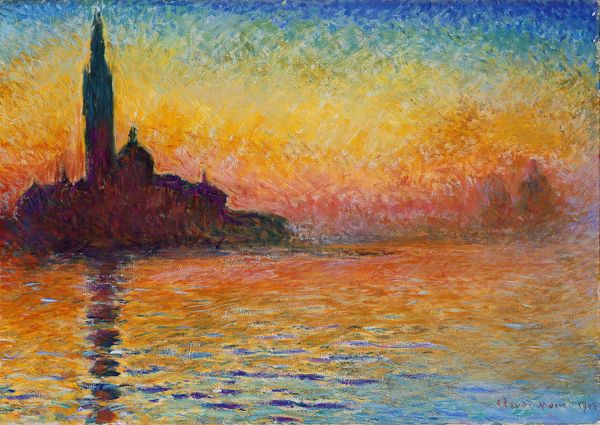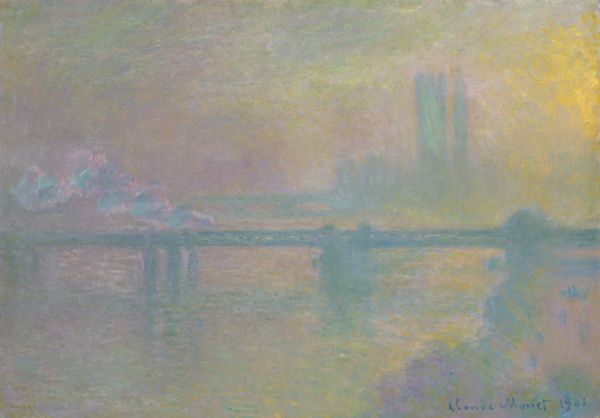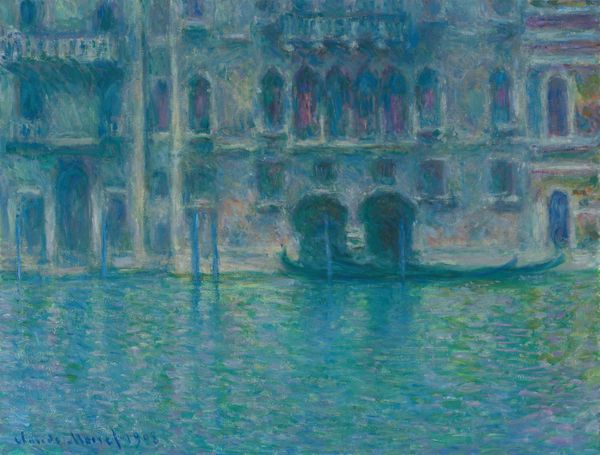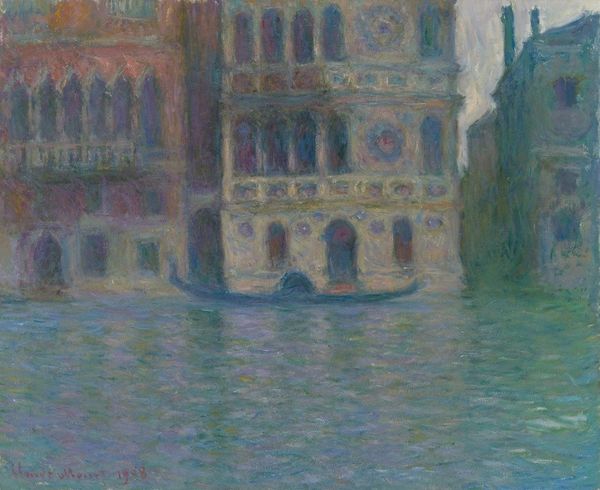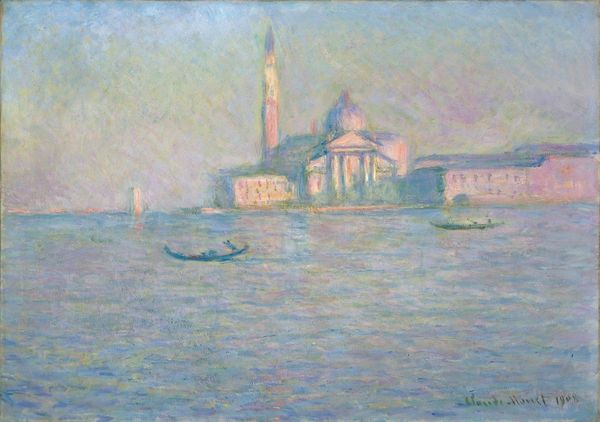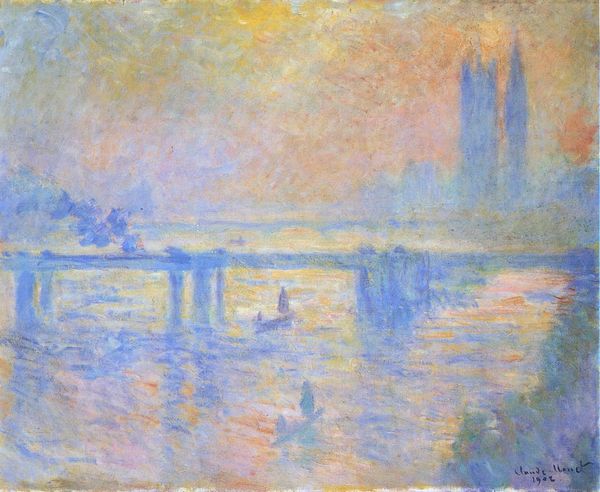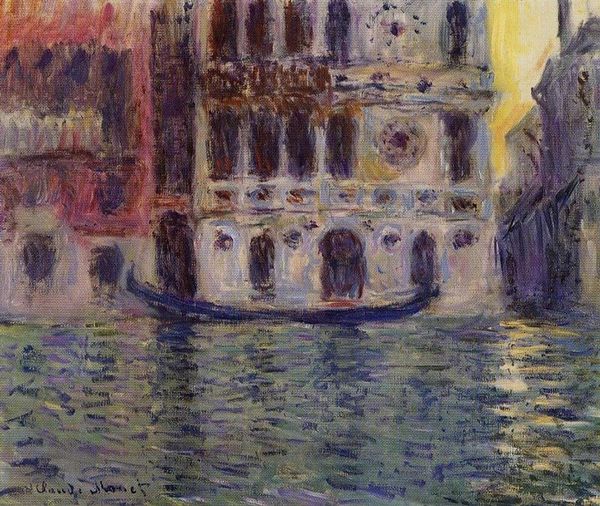
Copyright: Public domain
Curator: Monet's "The Grand Canal, Venice," painted in 1908, offers us a shimmering vision in oil paint. It’s a classic Impressionist take on this iconic cityscape. Editor: It almost feels like looking at Venice through a heatwave. That haze of blues and mauves really softens the hard edges of the architecture. You know, everything sort of dissolves into a dream. Curator: Exactly. The way he handles light is extraordinary. Look at how it dances on the water, fragmented, reflecting the facades above. Monet's Venice wasn't about topographical accuracy; it was about capturing a feeling, an ephemeral moment. These paintings came at a period, by the way, where Venice was becoming a fashionable destination. Artists really propelled a new market for Venetian imagery. Editor: It’s funny you mention fashion because I find it terribly romantic. The blurred lines make me think of memories. We never see places *exactly* as they are in the present, do we? Our past experiences tinge every observation. Curator: Absolutely. Monet visited Venice later in his life and his vision was already affected by cataracts, influencing his palette and technique. There's been so much writing on Impressionism and optics. Some view this as critical to the work's interpretation. Others feel this is taking the romance and interpretation away from something far simpler – that is, simply representing nature. Editor: I get both perspectives, to be honest! Knowing a little about his eyesight at the time gives me a deeper connection. Still, beyond all the historical and biographical readings, it’s that pure visual sensation that always hits me first. The feeling, that "dissolving dream" as I called it. Curator: It is magical. In his Venice series, Monet delivers a unique vision. Not the crisp postcard image we're all familiar with, but something altogether more subjective and fleeting. Editor: Precisely. A Venice that exists perhaps only in the mind's eye. Curator: A fitting endnote for a work that prompts reflection, doesn't it? Editor: I concur. The more one looks at this work, the more questions one uncovers, which speaks highly of Monet’s insight.
Comments
No comments
Be the first to comment and join the conversation on the ultimate creative platform.
